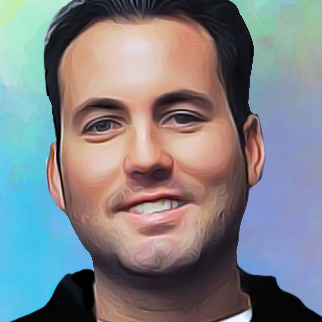Daniel Buchner (LinkedIn | Twitter) knows his data.
And, as a developer working on decentralized identity at Microsoft, he cares about what the world is doing with yours. “I work in the identity division of Microsoft and it really centers around technical product and standards for decentralized identity. And we say ‘decentralized identity’ because technically it doesn’t need to include something like a blockchain or a ledger, it just so happens that those systems – those cryptosystems that you’re talking about – are really tailor-made for the use case and the features that we need a for decentralized identity in those pursuits.”
He stopped by The Mission Daily to talk about privacy, data, and what this new wave of info-mining means for the future.
In today’s digital systems, “true identity” doesn’t exist. “There’s a few pieces of identity, one main one that everyone recognizes identifiers. You have many of those today in many systems and they’re all centralized like your social security numbers and identify with the U.S. government. You might have an email address that’s essentially the least identifier from a domain. Maybe it’s Outlook, maybe it’s gmail or something like that. And there’s several other identifiers that are similar.”
And, according to Daniel, there’s a problem with that. “It’s dubious to tie a lot of your data and your digital self to this identifiers, because they really could be pulled out from you at any time, corporations go bankrupt, they shut down services. And if those identifiers had key elements of your actual identity tied to them, you would kind of lose access to those. So there’s what I call core identity – which is what everyone would think about: driver’s license, those proofs of who you are in your relation to government entities, that sort of thing. But then there’s also everything else, which is about 95% of identity. And that’s like your blog posts, your phone calls, your interactions with people, your app data, all that stuff.”
And all this data mining could have some serious moral implications – ones we should be aware of. “I think this is a huge problem, and it’s only going to get worse if we don’t do something about it and its effects – from the lens of government and from the consumer space. And you see it everywhere. So the government tracks all of this Metadata. In a lot of cases, the metadata is actually the most critical pieces of data that you can track. So to know where someone’s going to be their patterns of life and all about them at the level that you could predict what their next day’s going to look like roughly, I think it’s just a scary thing, I don’t think anyone should have that power. I think that we should be protected from that and our rights should be upheld.”
So what can we do about it? Daniel’s working on it. “Our thesis… is that you should be in control of that information. All elements of your identity, whether it’s your update or your proofs and know what you disclose, and have the ability to minimize that disclosure, so you stay safe and private.”
In a world where it seems like all lives are tied to our phones, this might seem like a pipe dream. But it’s not. “If we could just imagine a system where you had an identifier, but it wasn’t email address that was given to you by company… it was something that you could create and own independently of any other organization. And you had this identifier and it allowed you to securely encrypt data and keep it private for yourself in several locations. We call these things identity hubs or personal data stores, and we believe that you start to collect your data with you. ”
That’s the future that the Decentralized Identity Foundation is fighting for. “Our concept and the concept of many other organizations in the Decentralized Identity Foundation that we contribute to, is that you might have something like pairwise identifiers. If I meet someone and I want to have a discrete relationship with them, I would create one of these decentralized cell phone identifiers and that’s how they would know me, so it doesn’t correlate everything I do to one ID.”
This idea – that we should own our information – is on the forefront of a burgeoning revolution. There’s a lot to take in, and a lot that still needs parsing out. How then, can the average consumer get on board and know what rights to fight for? Buchner has a criteria:
Ask yourself, ‘What value am I getting out of having this particular piece of data public to others?’ And if I can’t answer that question… it probably shouldn’t be.”
To hear more from Daniel, check out our podcast here.


